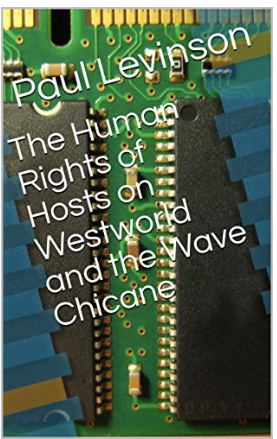
Jeremy Thompson, Paul Levinson, Steve Padin, Chris Hoisington
Here's the set list for my 9 November 2019 (Saturday), 5:30-6pm performance at
Philcon (in Cherry Hill, NJ, at the
Crowne Plaza Hotel), room Plaza VI (Six) - the first public performance of songs from my new science fiction related album,
Welcome Up: Songs of Space and Time, produced by Chris Hoisington and to be released by Old Bear Records in early 2020:
If I Traveled to the Past (words by Paul Levinson, music by John Anealio)
Tau Ceti (Paul Levinson and John Anealio)
Samantha (Paul Levinson)
Welcome Up (Paul Levinson)
Alpha Centauri (Paul Levinson and Peter Rosenthal)
Cloudy Sunday (Paul Levinson and Linda Kaplan)
I Knew You By Heart (Paul Levinson and Peter Rosenthal)
Picture Postcard World (Paul Levinson)
The names in parentheses are the songwriters. I'll be singing all the songs, against backing tracks from my new album Welcome Up (to be released by Old Bear Records early in 2020) and two other songs from Twice Upon a Rhyme (Happysad Records, 1972).
backing tracks for If I Traveled to the Past, Tau Ceti, Samantha, Alpha Centauri, Welcome Up, I Knew You By Heart, Picture Postcard World: guitars Jeremy Thompson, drums and keyboard Steven Carlos Padin, harmony and production Chris Hoisington, keyboard Anthony Hoisington, accordion Don Frankel
backing track for Cloudy Sunday: guitar Peter Rosenthal, piano Barbara Krupnick, harmony and production Chris Hoisington, production Paul Levinson
more about my music: Reverbnation, Facebook, Bandcamp, Spotify
==========
The rest of the convention should be lots of fun, too. Here's my schedule:
Fri 6:00 PM in Executive Suite 623 (1 hour)
READINGS: PAUL LEVINSON, APRIL GREY, JAMES CAMBIAS (3723)
[Panelists: Paul Levinson (mod), April Grey, James L. Cambias]
Note: I'll be reading from a brand new alternate-Beatles story, "It's Real Life," for the first time in public!
Fri 7:00 PM in Crystal Ballroom Promenade (Gaming) (1 hour)
AUTOGRAPHS: PAUL LEVINSON, APRIL GREY, JAMES CAMBIAS (3726)
[Panelists: Paul Levinson (mod), April Grey, James L. Cambias]
Sat 11:00 AM in Crystal Ballroom Two (1 hour)
ARTIFICIAL INTELLIGENCE AND CONSCIOUSNESS (3590)
[Panelists: Jeff Warner (mod), David Walton, Rebecca Robare, Anna
Kashina, Paul Levinson, Muriel Hykes]
Does “I think, therefore I am” apply to AI? Could it ever? How
could we tell if it happens
Sat 3:00 PM in Plaza V (Five) (1 hour)
JEWISH SCIENCE FICTION (3530)
[Panelists: Simone Zelitch (mod), Paul Levinson, Aaron Feldman, B.
Lana Guggenheim, Daniel Kimmel, Alex Shvartsman]
Is it a subgenre of its own? Plenty of Jews write SF, and plenty of
non-Jews incorporate Jewish history and elements of the Jewish
supernatural into their work. What can we learn from this
classification, and does it enrich or limit how we read
Sat 5:30 PM in Plaza VI (Six) (30 mins) Paul Levinson mini-concert
Sat 11:00 PM in Crystal Ballroom Two (1 hour)
GAME OF THRONES (3600)
[Panelists: Charlie Robertson (mod), Michael A. Ventrella, Muriel
Hykes, Paul Levinson]
It wouldn't be inaccurate to say that *everybody* lost when it comes
to the HBO adaptation. How should the show have ended? How might the
ending of the novels differ
Sun 12:00 PM in Crystal Ballroom Two (1 hour)
HOW FAR CAN YOU SUSPEND SOMEONE'S DISBELIEF? (3514)
[Panelists: Elektra Hammond (mod), Paul Levinson, Lawrence Kramer,
Julie Ann Dawson, Robert E. Waters]
How much can you ask a reader to take on faith before they can't
take your story seriously any more? Are there ways to get readers
willing to accept more challenging changes and assumptions? What
authors have succeed at pushing the boundaries without pushing their
readers out of the story


















